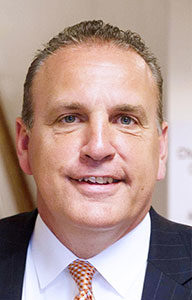By Kevin Shrum
Pastor, Inglewood Baptist Church, Nashville
 Focal Passage: Ezekiel 37:1-14
Focal Passage: Ezekiel 37:1-14
Someone once took each letters of the word GOSPEL to define the gospel — God Offers Sinful (Dead) People Eternal Life. But this is only the beginning of what the good news means. The phrase — “Jesus did not come to make good men better, He came to make dead men live!” — is true. God’s offer of salvation is made all the more remarkable when we understand our condition outside of Jesus Christ and comprehend and embrace by faith God’s transforming grace in Jesus Christ. Ezekiel’s vision of the valley of dry bones illustrates our condition and God’s clear offer of grace.
The potential, Ezekiel 37:1-6. God gives Ezekiel a clear vision of Israel’s condition, and ours as well. Ezekiel says that God “brought me out by his Spirit and set me in the middle of the valley; it was full of bones,” (v. 1). The bones he saw were dry, numerous, and disjointed (v. 2). And so is the condition of the sinner — dead in sin (Ephesians 2:1), disconnected from the life of God (Ephesians 2:2-3).
God wanted Ezekiel to see and understand this seminal truth — just as dead, disconnected bones cannot generate life on their own, dead men cannot make themselves live. Unless God acts all hope is lost.
God asked Ezekiel an important question: “Son of man, can these bones live?,” (v. 3). Ezekiel’s answer is classic: “Lord God, only you know” (v. 3). In other words, if God doesn’t initiate new life dead bones cannot live; unless God’s life-giving Spirit works spiritually dead sinners cannot live.
God asked Ezekiel to do something ridiculous — “Prophesy concerning these bones and say to them: Dry bones, hear the word of the Lord!” (v. 4). God tells Ezekiel to preach to a dry, dead congregation. Sound familiar? But unless God brings life to what is dead all hope is lost. In one sense, preaching is foolish. We preach Jesus’ death and resurrection to sinners who do not care about or love God. It sounds foolish to the modern ear. Yet, it is through the foolishness of preaching that God chooses to save repentant sinners (1 Corinthians 1:18-31).
The presentation, Ezekiel 37:7-10. Ezekiel preached his heart out. And what happened? The dry bones began to rattle and come together (vv. 7-8). But this was not enough. The bones had form but no life. God knew that a person can have an “appearance of godliness, but denying its power” (II Timothy 3:5). A skeleton needs life.
Ezekiel then preached to the winds, symbolizing the Holy Spirit who convicts of sin (John 16:6-11) and gives new life (John 3:3, 5-8). And what happened? The valley of dry bones “came to life, and stood on their feet, a vast army” (v. 10).
The promise, (Ezekiel 37:11-14). Ezekiel’s vision was descriptive of Israel. But God promised Israel that He would “open your graves and bring you up from” their dead dryness (v. 12). God promised that He would put His Spirit in them, making them live (v. 14).
We, too, must preach the good news of Jesus Christ. Jesus died for our sins and was raised from the dead, destroying the powers of sin, death, and hell, offering forgiveness and eternal life to all who turn from their sin and believe the good news (John 1:12). B&R Shrum is pastor of Inglewood Baptist Church, Nashville and is a past president of the Tennessee Baptist Convention.

